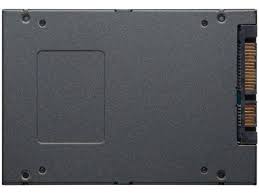Selfhosted
A place to share alternatives to popular online services that can be self-hosted without giving up privacy or locking you into a service you don't control.
Rules:
-
Be civil: we're here to support and learn from one another. Insults won't be tolerated. Flame wars are frowned upon.
-
No spam posting.
-
Posts have to be centered around self-hosting. There are other communities for discussing hardware or home computing. If it's not obvious why your post topic revolves around selfhosting, please include details to make it clear.
-
Don't duplicate the full text of your blog or github here. Just post the link for folks to click.
-
Submission headline should match the article title (don’t cherry-pick information from the title to fit your agenda).
-
No trolling.
Resources:
- selfh.st Newsletter and index of selfhosted software and apps
- awesome-selfhosted software
- awesome-sysadmin resources
- Self-Hosted Podcast from Jupiter Broadcasting
Any issues on the community? Report it using the report flag.
Questions? DM the mods!
view the rest of the comments

How, with a couple of hba I can connect connect easily dozens of sata SSDs to a consumer motherboard, while doing the same with nvme drives not exactly as easy or cheap
Just did the math out of curiosity. NVMe averages 4000mb/s (worst case) SATA averages 600mb/s (best case)
It would take about 7 disks to get nearly the same speeds.
Average 4TB NVMe seems to be about 200-250$ 8x cheap as dirt 512MB SSD seems to be about 240$
So if you do not have an NVMe slot on your old mobo but do have 8x spare SATA slots, you could get the same or .5 TB less of space at nearly the same speed, for nearly the same price. You would gain the added benefits of raidZ1 on ZFS, something NVMe on one slot does not give.
This also gets pretty interesting because those could be cheap 1TB disks and you now have 7-8TB of space for around 320$ (depending on raid)
I think it comes down to what kind of motherboard the user has and if they want raid for uptime/disaster recovery.